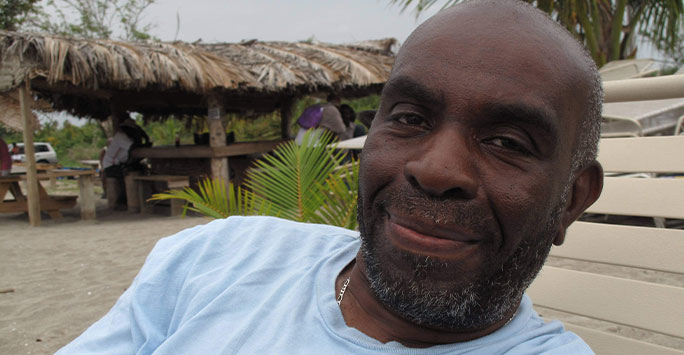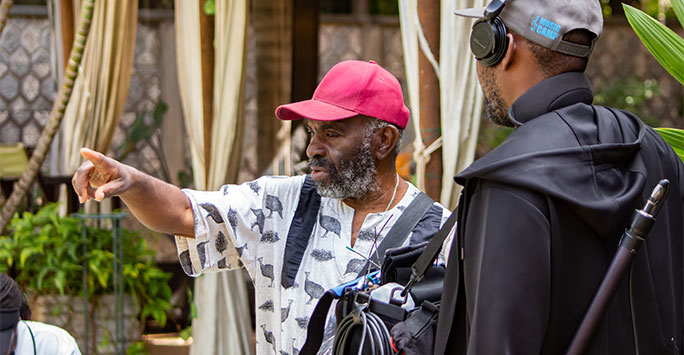
Dr Ama Biney is a Lecturer in Black British History, in the University of Liverpool's History Department.
Menelik Shabazz was an independent black British film maker who died last year whilst filming, “The Spirits Return” in Zimbabwe. He was a pioneer, particularly with his film, “Burning An Illusion” (1981) which was recently screened at the FACT in Liverpool with a full house. It tells the story of Pat (played by Cassie McFarlane), a young black working-class woman who works as a receptionist and falls in love with the volatile character of Dell (played by Victor Romero Evans) after meeting him at a party.
Shabazz was radical in telling the story from the viewpoint of the central character of a black woman. Pat’s illusions of respectability through marriage and material comfort are eroded when Dell is convicted for assaulting a white police officer. He is sentenced to 4 years imprisonment after he intervenes in a domestic violence dispute between his male friend beating his girlfriend. Marva Buchanan plays “Lorna” who appears halfway through the film. She is a community activist organising welfare for families of the incarcerated. I asked Marva Buchanan her thoughts on the film and she said, “Forty two years on I am really glad that I was offered and played a part in arguably a landmark in the history of black film in Britain, one in which the majority of cast and crew were young, gifted and beautifully black.”

Credit: Estate of Menelik Shabazz.
Shabazz was ahead of his time in portraying the themes of sexism, misogyny, police racism, racism in the workplace, unemployment, as well as black organisation in the community, (which occurs gently in the background towards the end of the film). This is a subtle unobtrusively perceptive film – much like the very humble Shabazz himself, who I met at least twice in the last 20 years. It is a timely film and a prescient one in the light of 42 years of black deaths in police custody in several cities across the UK.
The film was first screened in 1981 after having been made in 1979 on 35 mm film. Bea Freeman, an independent filmmaker who introduced the film, informed the audience that filmmaking at that time was a laborious process and Shabazz somehow managed to find the £80,000 to produce the film. Menelik went on to explore similar and other issues in later films. Whilst he screened many, the two that are historically perceptive are his “The Story of Lovers Rock” (2011) and “Blood Ah Go Run” (1981). The latter tells the tragic story of the 18 January 1981 fire in southeast London in which 13 young black people died in a racist house fire and the subsequent “Black People’s Day of Action” on 2nd March in which up to 20,000 black people marched through the streets of London demanding justice. This pivotal march was followed by the “Brixton riots” that spread to other British cities.
The Story of Lovers Rock is a sophisticated melange of serious commentary from musicians, producers (black and white); ordinary black members of the public and celebrities; film footage of the late 1970s and early 1980s; and Lovers Rock artists performing their greatest tracks. Integral to this beautifully edited potpourri is social and cultural history combined with some comedic sketches on how and why this musical genre helped forge a “Black British identity,” since Lovers Rock emerged against the background of sus laws and the continued racialisation of black people during the late 1970s and early 1980s in Thatcher’s right-wing Britain. In providing such a rich perspective it is far more discerning than Steve McQueen’s rather disappointing self-indulgent and disjointed story line of “Lovers Rock” (2020).
As Menelik died in the process of seeking to complete his final film, friends of the late filmmaker have launched a campaign on Indiegogo to raise funds to complete the film. It centers around Nubia, a social worker who decides to reconnect with Africa in a physical and spiritual journey in which she not only finds love but explores the past of ancient Zimbabwe. If you would like to help complete the film in honour of a great film maker, who has yet to become a household name, access details here.